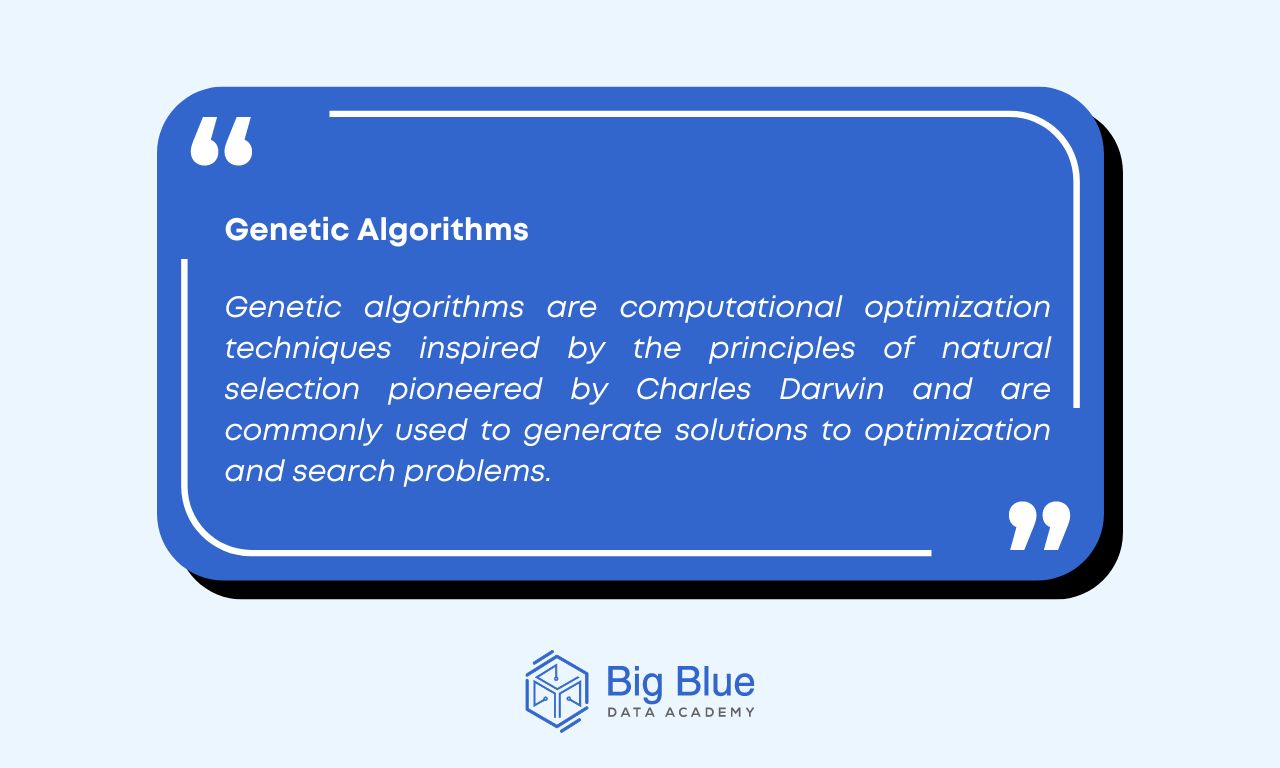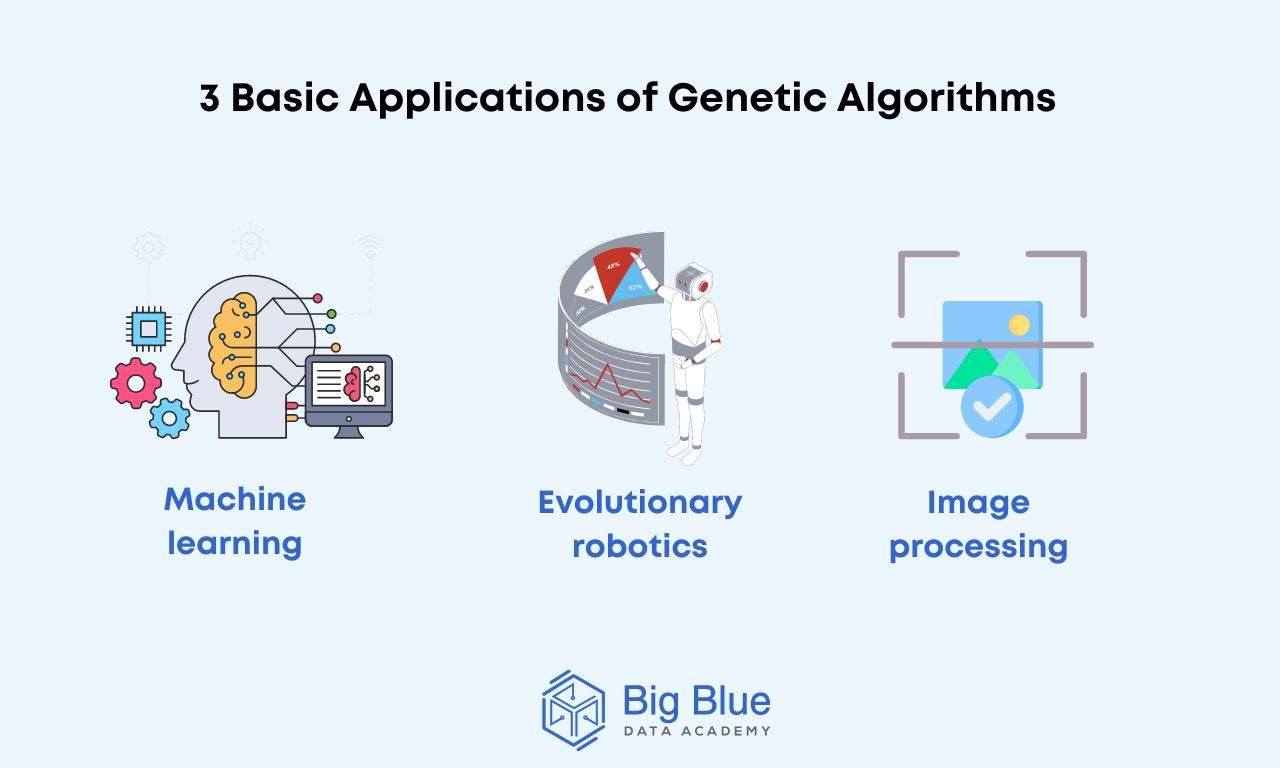Genetic Algorithms: Definition & Applications
In the field of computer science and data science, a concept inspired by Charles Darwin's theory of natural evolution has emerged. This concept is genetic algorithms, which we will discuss in detail in today's article.
Specifically in this guide, we will explore:
- What are genetic algorithms?
- How exactly do they work?
- What are their applications?
- How genetic algorithms differ from traditional algorithms
Before we dive in, let's start with a basic definition.
What Are Genetic Algorithms?
Genetic algorithms are computational optimization techniques inspired by the principles of natural selection pioneered by Charles Darwin and are commonly used to generate solutions to optimization and search problems.
At their core, genetic algorithms include a population of individuals, each of which represents a possible solution to the problem.

In particular, they operate on a set of possible solutions represented as binary strings or other data structures.
After seeing some basic things about genetic algorithms, let's see how they work.
How Do Genetic Algorithms Work?
A genetic algorithm starts with an initial population of individuals and then goes through a series of iterations known as generations in which the individuals undergo operations such as:
- Selection
- Crossover and
- Mutation
During the selection stage, individuals are evaluated based on a fitness function, with individuals having higher fitness values being more likely to be selected for further processing.
A crossover is an operator where two selected individuals exchange genetic information to create offspring.
Last but not least, mutation introduces small random changes in the genetic information of some individuals in the population.
After the genetic operators are applied, a new population is created, replacing the previous generation.
So we understand that this process is not done just once but is repeated for a set number of generations or until a desired level of fitness or a set number of iterations is reached.
Genetic algorithms have applications in a wide range of optimization and machine learning problems.
Next, let's take a closer look at which areas genetic algorithms are used with great success.
3 Basic Applications of Genetic Algorithms
Genetic algorithms have applications in the following areas:

Machine learning
An important area of application of genetic algorithms is machine learning.
Genetic algorithms are used in this field to optimize hyperparameters such as learning rate and network architectures in neural networks.
Evolutionary robotics
Genetic algorithms also have applications in the field of robotics, specifically in the evolution of robot behavior and control strategies, providing solutions to maximize performance metrics such as speed and adaptability.
Image processing
Genetic algorithms are applied with great success in image processing tasks, such as image reconstruction, noise removal, and feature extraction, which is a basic technique of image recognition.
So after talking in detail about genetic algorithms and their applications, let's explore a fairly frequent question that comes up.
How Are Genetic Algorithms Different from Traditional Algorithms?
Genetic algorithms and traditional algorithms differ in several key aspects, such as their implementation, complexity, and methodologies.
More specifically, genetic algorithms are designed to find optimal solutions to difficult problems by evolving a population of possible solutions over generations, using mechanisms inspired by natural selection.
In contrast, traditional algorithms follow a methodical rather than adaptive process to solve a problem step by step.
Also, another difference we find is in terms of the fields of application of each.
For example, genetic algorithms are used in fields such as research, machine learning, and artificial intelligence, while traditional algorithms are used in fields with a more structured approach such as programming and mathematics.
In a Nutshell
So we saw what genetic algorithms are, how they work, and how they differ from traditional algorithms.
The field of data science and AI offers many career opportunities and jobs with a very good salary. So if you're involved in this subject and want to enrich your knowledge, read more related articles on our blog.


.jpg)